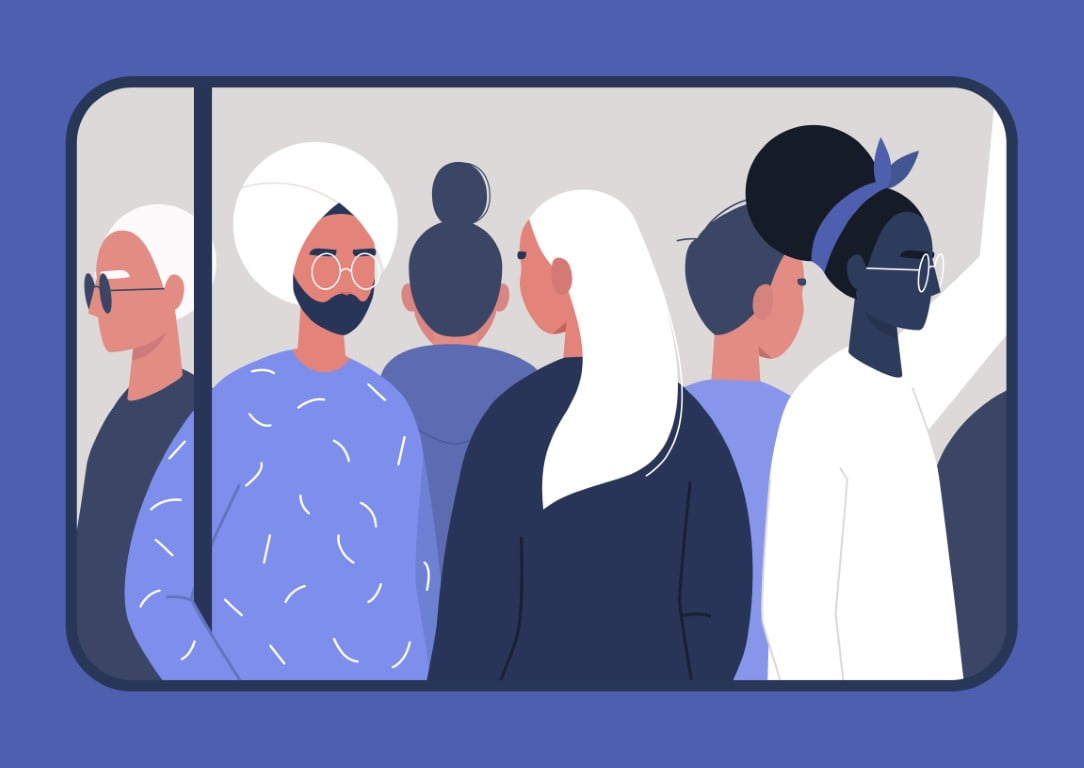I want to walk into Networking Events one day and scream:
If you want to properly succeed at networking events, stop coming to networking events!
It was around the summer of 2012. I remember the date vividly because it was the day I stopped attending networking socials, conferences, and other events that revolved around business cards and small talk. Let me rephrase that – I stopped attending network socials out of my own will. I occasionally still had to attend corporate socials because they’re mandated by the company, but the networking element is no longer my focus and I don’t consider them as such.
The reason I stopped attending these events was because of how ineffectual they are when it comes to developing actual relationships. I’m not saying that you can’t meet people at these events, but the interactions are generally surface-level and lack any real substance. Most people go to meet-and-greets intending to meet as many people as possible and collect as many business cards as they can. They flit from person to person, trying to make a good impression in the hopes that this person will be able to help them out somehow in the future. Networking events are social events. They’re designed for people to socialize and have fun. They’re not designed for people to network.

The Fallacy of Networking Events
The problem with networking socials is that everyone is trying to do the same thing. They want to collect as many business cards as possible and talk to as many people as they can. And in the process, they end up talking about nothing of substance. I’m not saying that all networking socials are a waste of time. If you’re lucky, you might meet one or two interesting people. But the odds are against you. And if your goal is to network to find a new job, make new business contacts, or get ahead in your career, you’re going about it all wrong.
You need to be talking to people one-on-one. You need to be involved in outdoor activities and other activities where you can get to know someone. And you need to be doing these things regularly, not just every once in a while.
The Illusion of Success
One of the biggest problems with networking socials is that they give people the false impression that they’re accomplishing something. They walk around collecting business cards, and LinkedIn profiles, and talking to people, and they think that they’re making progress. But the truth is, they’re not. They’re not making progress because they’re not building relationships. They’re just exchanging surface-level pleasantries with a bunch of strangers. And when it comes time to ask for something, they won’t have any relationships to fall back on.
Let’s say, for example, that you’re looking for a new job. You go to a networking event and you meet a bunch of people. You exchange business cards and LinkedIn profiles. And then, when you’re ready to start job hunting, you reach out to all of these people and ask them for help. But none of them respond because they don’t know who you are. They were just being polite at the networking event and they exchanged business cards with you because that’s what you’re supposed to do at networking events. But they have no reason to help you because they don’t have a relationship with you.
What to do instead of Networking Events?
You can do a few other things instead of networking events and still get the same effect. Here is a list of 4 proven suggestions to get you out of these non-sense time-wasting events:
One-on-One Meetings
If you want to network properly, you need to be meeting with people one-on-one. You need to be having conversations that are focused and meaningful. You need to be asking questions and getting to know the other person. This is how you develop relationships. And this is how you make progress in your career. The story of how I got my current job is a perfect example of this.
I had a neighbor in Washington Heights who was working as a freelance writer and wanted to get a full-time job with a specific company. But he didn’t know anyone who worked there. One day, he decided to reach out to one of the employees on LinkedIn and ask if she would be willing to meet for coffee. She said yes, and they met for coffee before the first interview a few days later. They had a great conversation and hit it off. A few weeks later, she called my neighbor and told him they were hiring and she put in a good word for him. He ended up getting the job, and it was all because he took the time to have a one-on-one.
These one-on-one meetings can be coffee dates, lunch dates, or even just quick chats in the hallway. The important thing is that you’re talking to someone one-on-one and that you’re getting to know them. One-on-one meetings are far more productive than networking events because they allow you to have real conversations and develop actual relationships.
Join Outdoor Activities and Other Clubs
A journey of a thousand miles begins with a single step. – Lao-Tzu
Outdoor activities and clubs are great places to meet new people and develop relationships. And the best part is, you’re already doing something that you enjoy. So it doesn’t even feel like work. I joined a softball club when I first moved to New York City, and it was one of the best decisions I ever made. I not only met a lot of great people, but I also got to play softball, which is something I love. If you’re not sure what kind of club or activity to join, start by thinking about the things you like to do in your free time. There are clubs and activities for just about everything these days. And they’re all great places to meet new people and develop relationships.
- Do you like to read? Join a book club.
- Do you like to run? Join a running club.
- Do you like to cook? Join a cooking class.
The point of the outdoor activity or club is not to network. The point is to have fun and meet new people. If you focus on having fun and being yourself, networking will take care of itself. Outdoor industry events are great places to meet people in your industry and develop relationships. These events can be conferences, seminars, workshops, or even just outdoor happy hours. Industry events are great because they allow you to meet people who are interested in the same things as you. And they provide a natural setting for networking. All you have to do is strike up a conversation with someone and see where it goes from there. Political Science Professor and co-author of “The Connected World: How Networks are Reinventing Business, Education, and Government”, Lee Rainie stated in an interview that,
“One of the things that people learn when they go to college is how to network. Where to meet strangers. How to engage with them. When to find out if there’s any chemistry? How to develop a relationship over time… In some ways, the Internet has been very good for this process because it has allowed people to keep track of one another in much more efficient ways. It has allowed them to make introductions to one another. And so, I think we should be teaching young people about these opportunities that are available to them online.”
Networking events are not the only places to network. They’re not even the best places to network. If you want to network properly, stop coming to networking events and start meeting people one-on-one, joining clubs and activities, and attending industry events. These are all far more effective ways to meet new people and develop relationships. So get out there and start networking!
Create a Digital Footprint
The social media portal LinkedIn helps to create a digital footprint for individuals as well as businesses. It is one of the most important online tools for networking. By filling out a profile, individuals can share their work experiences, educational background, and skills with potential employers, clients, or customers. LinkedIn also allows users to join groups related to their industry or interests, follow companies, and see updates from connections in their network. These features make it easy to connect with potential employers, customers, or partners. And they make it possible to develop relationships with people all over the world.
Digital footprints are important because they allow you to control how you’re perceived by others. They allow you to put your best foot forward and show the world who you are and what you’re all about. Besides, the craziest thing about the digital world is that everything you do leaves a trace. So it’s important to be aware of the footprint you’re leaving behind. Most people are familiar with the saying, “It’s not what you know, it’s who you know.” This statement is especially true in today’s digital age. To be successful, it’s important to have a strong network of connections. And the best way to develop this network is by creating a digital footprint.
Bottom Line:
Networking is an important part of business and career development. It’s a great way to meet new people, develop relationships, and learn about new opportunities. But it’s important to remember that networking is not about attending events or collecting business cards. It’s about developing relationships with people. And the best way to do that is by meeting people one-on-one, joining clubs and activities, and attending industry events.

